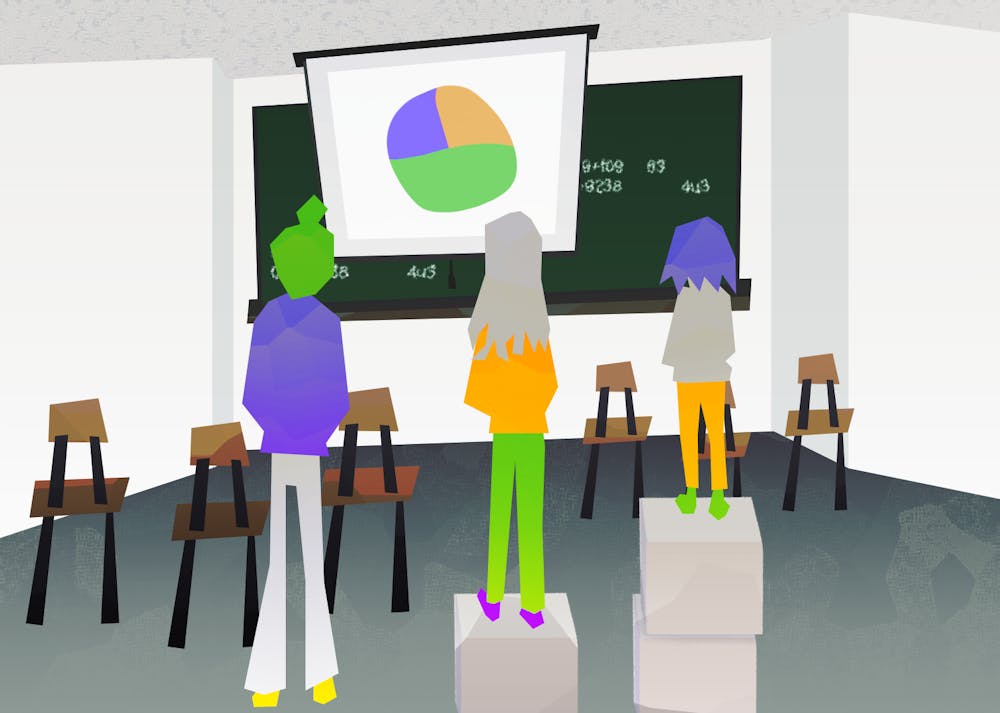ASU graduate students and their professors are collaborating with the city of Tempe on its Climate Action Plan (CAP) 2021 update.
The eight students in ASU's graduate course, "HSD 598 - Topic: Equity in Climate Action" are working with the city to create engagement programs which will allow the city to receive feedback on climate change proposals. The class is led by Lauren Keeler and Marta Berbés-Blázquez, assistant professors in the School for the Future of Innovation in Society.
"(The students) are very much leading the course," Keeler said. "We've provided the kind of scaffolding, but everything that's happening in the course with regard to engagement with the city of Tempe, what they look like, the kinds of stories being told, that is driven by the students' design."
The city of Tempe adopted its first Climate Action Plan in 2019, an initiative seeking to identify ways for the city to reduce greenhouse gas emissions and prepare for the consequences of climate change. The update process began in 2020, with a focus on "fiscal responsibility, enterprise, equity and engagement, and effectiveness and evidence."
Braden Kay, the city's sustainability director, said the city is looking to put an emphasis on climate justice proposals in the CAP update, and is involving two local groups, Chispa Arizona and Unlimited Potential, to aid in outreach to communities typically underrepresented in climate change discussions.
"(The students) are coming up with the tools and some of the approaches that all our partners are going to use with us as we develop the rest of the plan," Kay said.
The class hosted listening sessions with the city in early February to encourage residents to give feedback on what they'd like to see in the CAP update. One session was for adults, and the other was for youth and students.
"The sessions were, I think, really helpful for us to understand the sort of landscape of people's perspectives on climate in Tempe," said Jordan King, a graduate student studying sustainability who is in the class.
Francesca Lascala, a graduate student studying science and technology policy also in the class, said the sessions will be helpful in developing ideas for the update.
"Now we're using (the sessions) to create these engagements for next month, with in-person walks through the park as they read some signs and stuff like that," Lascala said.
In March, the students are planning to launch an in-person storytelling experience which will allow residents to explore what they want the future of Tempe climate policy to look like.
"We're planning to create some kind of story-based experiences that people will be able to engage with through texts, maybe a phone hotline, as well as through physical signage and other kinds of in-person engagement," said Ben Gansky, a Ph.D. student studying human and social dimensions of science and technology.
The in-person event is planned for March 23, but will also feature digital components that will allow residents to attend from home at any time they want.
At the end of the semester, the class will write a report to help the city draft the CAP update. More listening sessions will be held in the summer and fall, with a plan to present the update to Tempe City Council for approval before the end of the year.
"I'm so grateful to have this group of talented and thoughtful students working with us on how we engage with residents," Kay said. "This class is a great example of what can happen when government and students work together."
Reach the reporter at rpriest2@asu.edu and follow @reaganspriest on Twitter.
Like The State Press on Facebook and follow @statepress on Twitter.
Continue supporting student journalism and donate to The State Press today.

Reagan Priest is a managing editor, overseeing and working with the six digital desks at The State Press. She previously worked as a social justice reporter for Cronkite News and as a digital production intern at The Arizona Republic.




